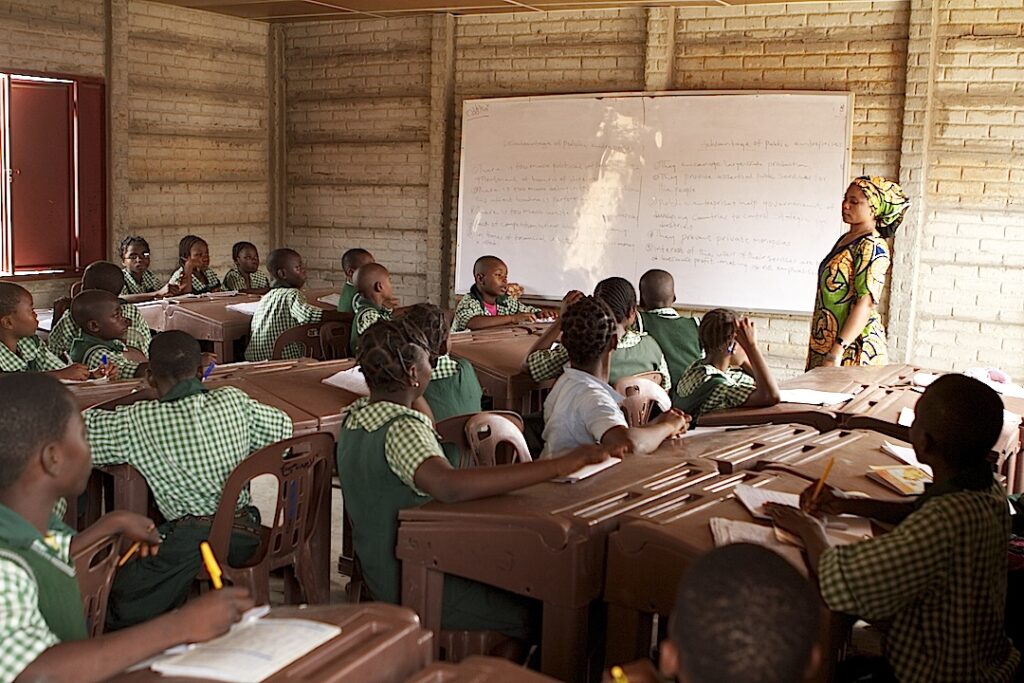The Nigeria Governors Forum NGF in collaboration with the Universal Basic Education Commission UBEC and NewGlobe has officially declared a national education crisis citing the alarming state of foundational learning and the persistent rise in out of school children

This declaration came during the State Level Workshop on Foundational Learning and Out of School Children held in Abuja on Thursday
WIDESPREAD EDUCATIONAL DEFICIENCY ACROSS STATES
According to the NGF a significant proportion of children in primary schools lack basic literacy numeracy and socio emotional skills needed for learning progression The forum revealed that while school enrolment figures may appear encouraging they do not translate into actual learning outcomes
GOVERNORS CALL FOR SYSTEMIC EDUCATION REFORMS
NGF Chairman and Kwara State Governor AbdulRahman AbdulRazaq represented by NGF Education Advisor Leo The Great emphasized that foundational skills must be seen as the building blocks of a successful education system
He said
“Nigeria is faced with a crisis We are dealing with some out of school children However enrollment in school for most children does not translate into actual learning”
“Across the states the number of children who are in primary school has insufficient levels of foundational literacy numeracy and socio emotional skills necessary for learning success in other subjects and higher skills for learning”
“Foundational skills are not merely the end goal of an educational system they are also critical building blocks for achieving other educational objectives including retention and progression from one level to the next”
He highlighted data indicating a 66 percent out of school rate among primary school age children in Nigeria stressing that poor quality of education is fueling dropout rates low transition and poor completion levels
EDUCATION SECTOR PLAGUED BY UNDERFUNDING AND NEGLECT
The NGF Chairman also pointed out systemic challenges affecting education delivery in the country including insufficient and undervalued workforce underfunded basic education lack of modern training resources outdated pedagogy poor monitoring and limited community engagement
He said
“Specifically basic education and the course of national governance in Nigeria are underfunded Lack of characterisation of the issues of conditional training absence of appropriate learning materials and independent training and literacy lack of familiarity with recent research in the operations of conditional training and digital literacy skills”
“Also weak local capacity and monitoring and evaluation of conditional training disruptions and outcomes insufficiency of available points low level of awareness and support from families and communities for conditional training skills and lack of commitment among state and non state actors in addressing these challenges are key factors in developing the education sector and in feeding on basic proficiency in numeracy and literacy in Nigeria”
He urged federal and state policymakers to adopt evidence based reforms and ensure foundational learning becomes a central pillar of state education systems
UBEC URGES NATIONWIDE POLICY ALIGNMENT
UBEC Executive Secretary Aisha Garba represented by Deputy Secretary Technical Rasaq Akinyemi called for urgent action to address structural problems that have persisted for decades in Nigeria’s education system
She said
“Basic education remains a critical concern in our national development The quality of education in our schools must be improved to ensure that every child can access the learning they deserve”
“Today’s gathering is a response to the urgent crisis we face—a crisis of national significance Millions of Nigerian children are out of school Many of their parents lack formal education and the necessary skills to lead productive lives”
Garba noted that the federal government supported by the World Bank and other partners has rolled out multi million dollar programs to close learning gaps and support basic education at the sub national level
She added
“Some states have already reached the stage of implementing community based programs Others are rolling out innovative energy health and learning solutions to improve outcomes for schoolchildren”
“We must build on these successes and ensure that no child is left behind Every Nigerian child deserves access to quality education”
NEWGLOBE WARNS OF STRUCTURAL EDUCATION EMERGENCY
NewGlobe Vice President for Policy and Partnerships Ifeyinwa Ugochukwu echoed concerns about deep structural issues in Nigeria’s education system and warned of a nationwide learning crisis
She said
“The issue at hand goes beyond out of school children It is actually about whether the children who find their way to classrooms are learning particularly in our rural communities”
“The unfortunate reality and we all know this too well is that in too many of our children in schools are not learning Multiple assessments conducted by the states have also shown that children in Primary 6 struggle with basic literacy and numeracy”
“This means that our education system is not just dealing with an access problem but with a deep structural and alarming learning crisis The truth is many children are sitting in our classrooms every day but leaving empty handed unable to read write or grasp a basic understanding”
“This is not a marginal concern It is a system wide emergency If we do not act quickly and deliberately we will be too late for millions of children”
She emphasized that the ability to read by age 10 is a strong predictor of educational completion and life outcomes
She concluded
“If a child can’t read by that age 10 they’re four times more likely to drop out A child who drops out is at high risk of crime unemployment exploitation and intergenerational poverty”
The workshop serves as a critical turning point in Nigeria’s education reform journey Stakeholders agree that the crisis must be addressed through coordinated policy implementation adequate funding community engagement teacher training and accountability mechanisms Failure to act decisively now could result in generational setbacks for millions of children across the country